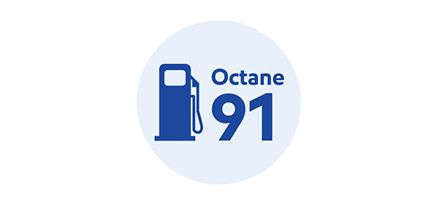On my new at the time 2019 HB 6-speed I used the recommended 87 octane. My driving is mostly on rural highways along with short 20 mile stretches of Interstate to town a few times a week. Occasionally I drive to visit family 200 miles each way on mostly Interstate. When filling up, the indicated average MPG always ranged from 33 to 35, once in a while 36. Just for the hell of it, seeing how the 2.0 motor has pretty high compression, I started filling with 91/93 premium and over 5-6 tanks I noticed the indicated mpg varied from 36-39. Changing back to 87 for a few tanks it was back to 33-35.
While this is not scientific it appears I get 8-10% better fuel economy using premium, unfortunately it's a new loss as premium around here is around 20% more expensive. Just wondering if any of you have tried this and found a similar increase?
While this is not scientific it appears I get 8-10% better fuel economy using premium, unfortunately it's a new loss as premium around here is around 20% more expensive. Just wondering if any of you have tried this and found a similar increase?







